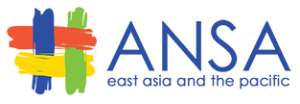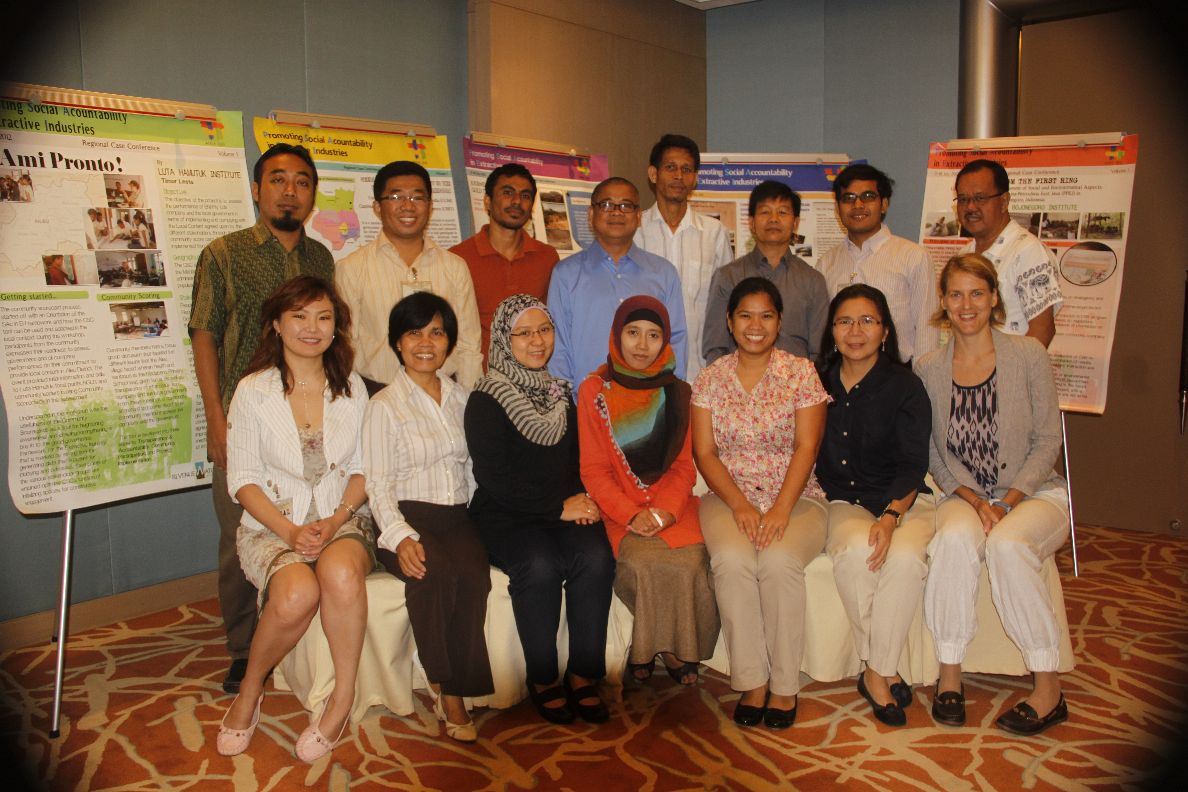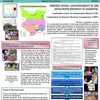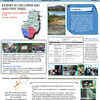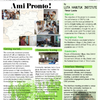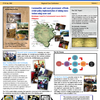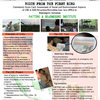CSOs from the Southeast Asian region gathered in an intimate conference where they shared lessons and presented cases on the use of Community Scorecards as a tool in promoting Social Accountability in Bangkok, Thailand on July 17 and 18, 2012. Participants were implementers of CSC from the following organizations, each working on a particular link in the EI Value Chain:
- Marinduque Council for Environmental Concerns (Philippines)
- Northern Luzon Coalition for Good Governance – Cordillera Vounteer Missioners (Philippines)
- Cambodians for Resource Revenue Research Transparency (Cambodia)
- Luta Hamutuk Institute (Timor Leste)
- PATTIRO and Bojo Negoro Institute (Indonesia)
A representative from the Responsible Mining Initiative shared the developments and goings-on in the spiking mining sector in Mongolia.
The participants’ choice of focus for their projects were not directly on the most drummed-up issue that is revenues and benefit sharing from the extraction of natural resource. Rather, they chose to inquire into the more fundamental concerns: a) access to and availability of information to people; b) right of citizens and community to be heard even when there is avowed company compliance to laws, policies, or business standards; c) clarification of roles and responsibilities on, among others, policy education and provision of information.
CSCs can start constructive engagement, the EI practitioners affirmed – overall, the processes have brought the ‘opposable’ stakeholders to the table – government, communities, company. As people’s awareness of their entitlements are heightened, governments and companies are more cognizant of the need to re-examine operations, their commitments to international treaties and standards vis-à-vis impacts on communities. This early, positive outcomes of the CSC process are being acknowledged: an agreement for harmonized budget development schedule in Bojonegoro, Indonesia; a review of a provincial mining resolution in Marinduque, Philippines; enhancing advocacy for participation of affected communities in determining types and participants for local content projects in Timor Leste; re-energizing the relationships of indigenous communities with local governments and the mining company in the Cordilleras in the Philippines. The CSC initiative in Cambodia will rally an informed community and government thru a radio and internet-based program.
The conference was a culmination of the pilot phase of the project designed as a capacity building project for NGOs and CSOs as intermediaries to enable citizens and communities to meaningfully participate in the governance of the extractive industry in their respective countries.
The meeting also provided venue for the discussion of the EI Global Trends as facilitated by Ms Roslita Arsyad of the Revenue Watch Institute and the presentation of the World Bank Contract Monitoring RoadMap by Ms. Kathryn Frauscher. These inputs have provided additional handles for participants in identifying spaces for Sac in EI.
The learning event ended with a planning activity which guided partners in laying out steps to move forward with the Sac in EI initiatives. This includes improving the CSC tool and process, broadening the geographical (other EI host communities) and sectoral (engage indigenous people , women, youth) reach of the initiative, and focusing on one area or issue to assess or review.
Conference Materials
